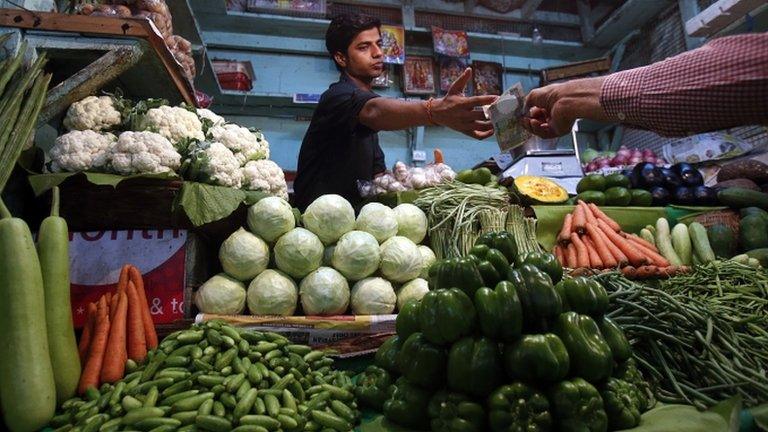Sowing the seeds for Africa's green revolution
- Published
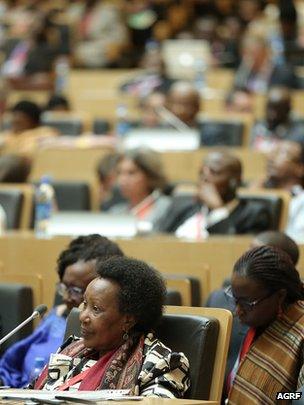
About 1,000 delegates gathered for the high-level meeting in Addis Ababa
A four-day high-profile gathering aimed at driving forward Africa's pursuit of food security and a green revolution has ended in Addis Ababa, Ethiopia.
The African Green Revolution Forum focused on delivering agriculture-led economic growth in sub-Saharan Africa.
It was looking to build on an African Union declaration to double food productivity and halve poverty by 2025.
More than 1,000 delegates, including heads of state, business leaders and scientists, attended the conference.
International Fund for Agricultural Development (Ifad) president Kanayo Nwanze told the Forum: "Whenever I speak on the topic of agriculture in Africa, I am filled with pride and fear.
"Pride, because our continent has achieved so much in recent years, and because it has the most extraordinary potential.
"And fear, because there is a very real danger that it will not fulfil this potential."
He observed that despite a bourgeoning middle-class in the continent, efforts to stem poverty and chronic hunger were "failing abysmally".
He told delegates that while many African economies were growing, it was on the back of a boom in extractive industries, such as oil and diamonds.
"Extractive industries do not yield jobs and income for Africa's poor and hungry," he said.
"I am proud that many African nations are becoming economic powerhouses, but without a viable agricultural sector and strong rural economy, I do not see a viable future for Africa."
'Rapid change'
Recently, the African Union - to coincide with its year of agriculture and food security - adopted the Malabo Declaration, which included a call for a greater effort to accelerate agricultural growth.
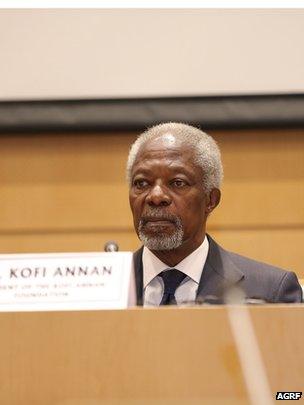
Speakers at the Forum included former UN secretary-general Kofi Annan
Ousmane Badiane, Africa director for the International Food Policy Research Institute (IFPRI), said the Forum was a timely opportunity for key stakeholders to come together to share ideas to move the continent's agricultural sector forward.
"This Forum occurred in a time of rapid change around us," he told BBC News.
"The private sector is very eager to engage, and farmers, local communities and governments would also like to engage.
"Having a place where they can come and meet, discuss and exchange ideas… is extremely important, and to sustain economic recovery through agriculture."
Dr Badiane was also a member of the Montpellier Panel - a group of African and European experts from the fields of agriculture, trade, ecology and global development, external - which presented a report at the Forum, arguing that investment in rural and food sector entrepreneurship would deliver jobs and wealth for Africa's poorest communities as well as deliver food security.
Challenges ahead
Elizabeth Wilson, adviser to Ireland-based charity Small Foundation and associate fellow at UK-based think-tank Chatham House, also attended the Forum.
She said: "AGRF is important because it combines high-level dialogue and cutting-edge information exchange with practical peer networking to work towards an African green revolution."
But she cautioned: "African countries face many challenges in improving national and regional food security.
"African farmers - most of whom are smallholder farmers with less than two hectares of land - often face very tough production conditions."
Ms Wilson told BBC News these included a lack of access to quality certified seeds and fertilisers, and pests and diseases.
Dr Badiane also highlighted the fact that farmers did not have access to much-needed training to develop their skills and knowledge.
"It is a fact that in most African countries you will not find the institutional infrastructure for people who would like to embrace farming and to get trained or to strengthen their skills in order to be a modern farmer," he said.
"If there was one thing for nations to do, it would be to find a way of mainstreaming access to vocational and professional training."
But the continent's farmers were a source of huge potential, he added: "In Africa, the future colour of gold is green - it's agriculture."
Ms Wilson agreed that there was "significant reason for optimism".
"If African leaders deliver on the increased political will of 2014 - creating a conducive policy environment needed for food production and agri-business to thrive - the African continent could not only meet its own food needs, but also become a major food exporter."
- Published2 September 2014
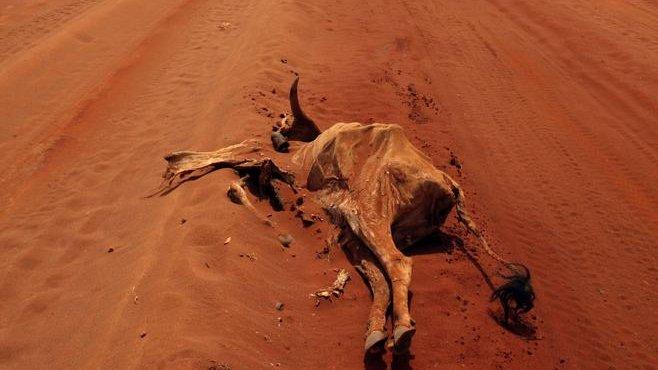
- Published1 September 2014
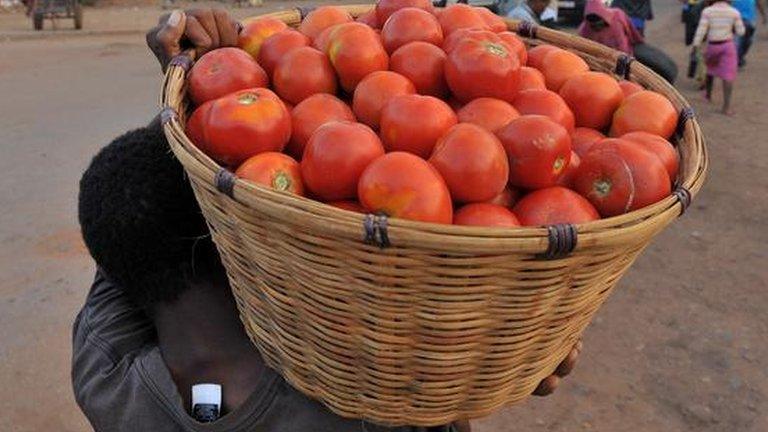
- Published25 July 2014
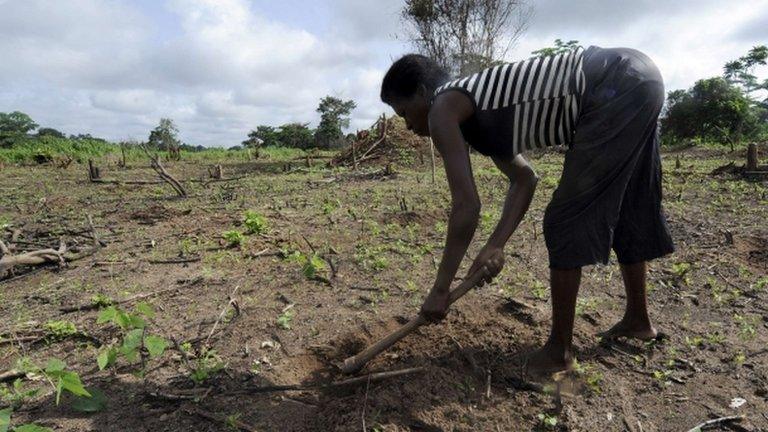
- Published11 October 2012
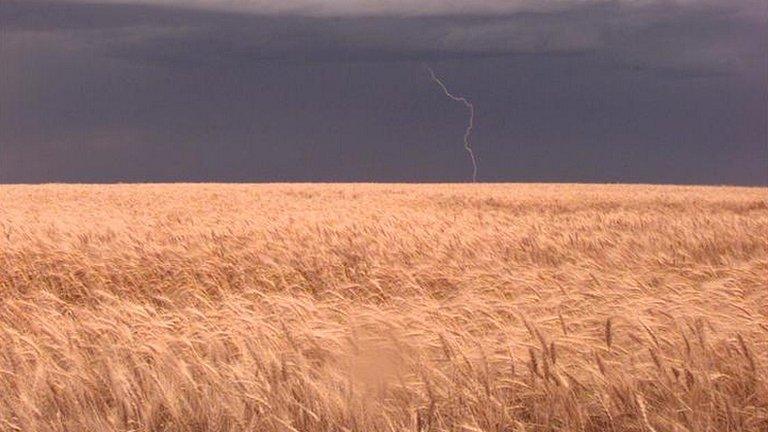
- Published3 March 2014
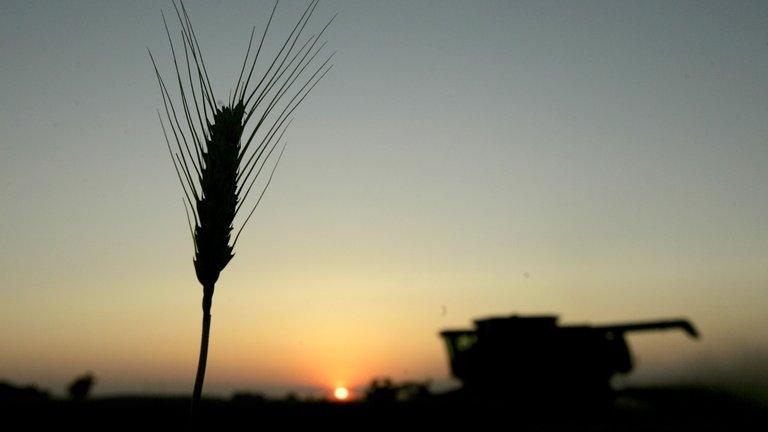
- Published4 October 2013
